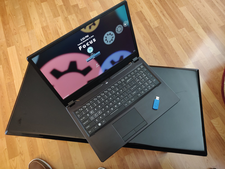NEWS
NEWS

In the news: Kubuntu Focus Laptop Is Now Ready for Preorder; Dell Adds a Much-Requested Feature to the New XPS Developer Edition Laptop; Bonsai Promises to Make Syncing Gnome Devices Easier; and Huawei Releases CentOS-Based openEuler as Open Source.
Kubuntu Focus Laptop Now Ready for Preorder
The Kubuntu Focus is a new Linux laptop effort set to marry the Kubuntu Linux distro (https://kubuntu.org/) and a laptop aimed specifically for gamers, power users, developers, video editors, and anyone who seeks performance and seamless Linux compatibility. This brand new laptop is ready for preorder (https://kubuntufocus.myshopify.com/).
The laptop was born from a collaboration between Kubuntu, TUXEDO Computers, and MindShareManagement Inc. The Kubuntu Focus will not only highlight the KDE desktop environment, but it will be the first officially recognized laptop created specifically for the Kubuntu Linux distribution.
But before you visit the site for preorder, understand this is a premium piece of hardware with a premium price tag. The hardware specs alone should clue you in on the price. The base model includes:
[...]
Buy this article as PDF
(incl. VAT)